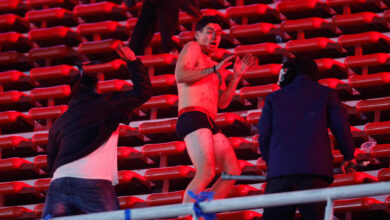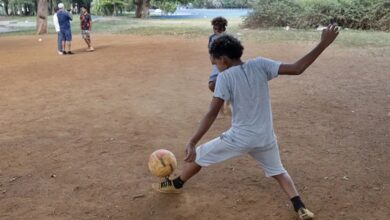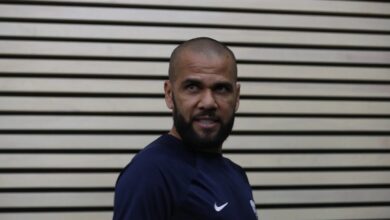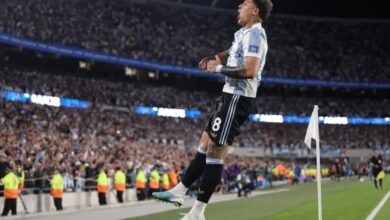South American Soccer Conmebol Announces Community Center for Kids with Recovered Corruption Funds
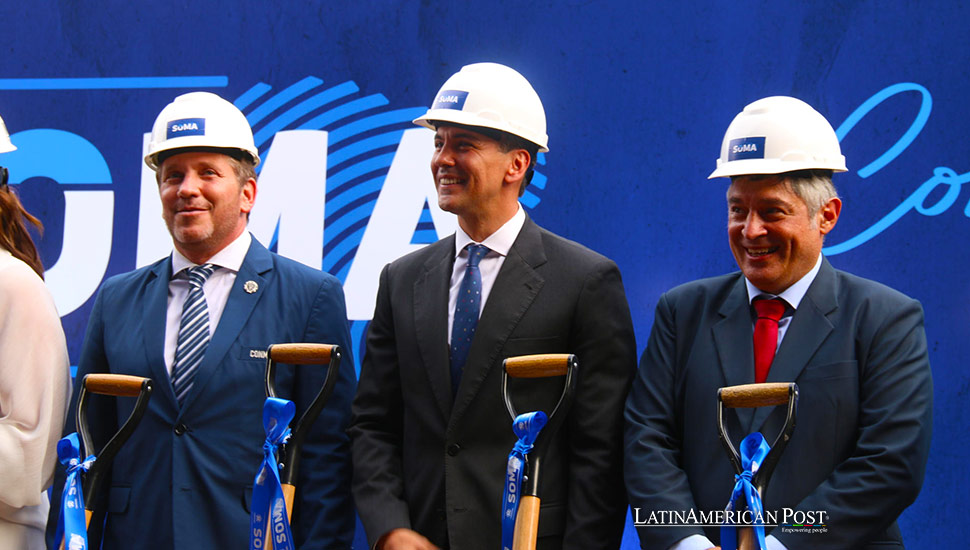
Launching in Paraguay, Conmebol’s ‘Suma’ project transforms corruption-recuperated funds into a lifeline for vulnerable youth, fostering educational and athletic development with a visionary community center.
In a significant stride towards social responsibility, the South American Soccer Confederation (Conmebol) initiated the construction of the ‘Conmebol Suma’ complex in Luque, Paraguay. This venture is not just a building; it’s a beacon of hope aimed at nurturing the potential of vulnerable children and adolescents. The funds fueling this project stem from a tainted past, specifically the infamous ‘FIFAgate’ scandal, now redirected to forge a brighter future.
A Groundbreaking Ceremony: Turning the Page on Corruption
The groundbreaking ceremony, led by Conmebol President Alejandro Domínguez and Paraguayan President Santiago Peña, marked the commencement of an ambitious journey. This event symbolizes a pivotal shift from the shadows of corruption towards the luminous path of community development and empowerment.
Financial restitution plays a crucial role in this narrative. The project is financed through the recovery of over $127 million by the U.S. Department of Justice, channeled through the World Soccer Remission Fund. This fund, a collaboration between FIFA, Concacaf, and Conmebol, aims to remediate the financial damage inflicted by the ‘FIFAgate’ scandal.
The ‘FIFAgate’ scandal, a term that shook the world of international soccer, refers to a widespread corruption case uncovered in 2015 involving senior officials and executives associated with FIFA, soccer’s global governing body. Investigations revealed a complex web of bribery, fraud, and money laundering, where officials accepted millions in kickbacks for media and marketing rights to major tournaments. This scandal not only led to the indictment of numerous high-ranking soccer executives but also exposed deep-rooted corruption within the sport’s administration, prompting calls for extensive reforms and transparency in global soccer governance.
Soccer as a Force for Transformation
Domínguez’s vision extends beyond mere financial reparation; he envisions soccer as a societal transformative force. “We want soccer to transform the lives of vulnerable boys and girls,” he stated, emphasizing the project’s broader ambition to replicate this model across the continent.
The ‘Conmebol Suma’ complex is designed as a multi-faceted facility equipped to provide its beneficiaries with educational, psychological, and medical support. It goes beyond being just a sports facility; it is a nurturing ground for holistic development. The complex will feature multi-purpose rooms and spaces conducive to learning and play.
The ‘Soccer 360 °’ educational project is a unique aspect of the initiative. Aimed at enhancing the academic performance of young participants, it leverages sport as a medium for learning and engagement. This approach underscores the belief in the power of soccer to inspire, motivate, and educate.
The Latin American context of this initiative is particularly resonant. The potential for such projects to make a meaningful impact is immense across the region, where soccer is not just a game but a way of life. With their rich soccer heritage, countries like Brazil, Argentina, and Colombia could see the ‘Conmebol Suma’ model as a template for addressing social issues through sports.
In Brazil, where soccer stars like Pelé and Neymar have emerged from humble beginnings, similar initiatives could provide a pathway for the next generation of talent. With its deep-rooted soccer culture, Argentina could embrace this model to bolster its youth development programs. Meanwhile, in Colombia, where sports and education are increasingly intertwined, the ‘Conmebol Suma’ project could serve as a benchmark for community-driven sports education programs.
The collaboration with Paraguay’s Ministry of Education signifies the importance of integrating educational frameworks with athletic development. This partnership ensures that the program is not just about sports; it’s about creating well-rounded individuals capable of thriving in various aspects of life.
As Domínguez optimistically noted, the fruits of this labor are expected to manifest within a year, offering a tangible measure of success. The anticipation is not just about the physical completion of the complex but, more importantly, about the lives it will touch and transform.
A Testament to Redemption: Soccer’s Transformative Potential
Therefore, the ‘Conmebol Suma’ project stands as a testament to the power of redemption and the transformative potential of soccer. It exemplifies how a new legacy of hope and development can emerge from the ashes of scandal. For the children and adolescents of Luque and across Latin America, this complex could be the ground where dreams are nurtured and futures are built.
Also read: Pelé and Maradona’s Secret Meeting In Brazil
The ‘Conmebol Suma’ complex is more than just a response to past misdemeanors. It is a forward-looking initiative that encapsulates the spirit of resilience and renewal. Through it, Conmebol sets a precedent for how sports organizations can play a pivotal role in societal development and empowerment, heralding a new era where soccer is not just for entertainment but a catalyst for positive change.

